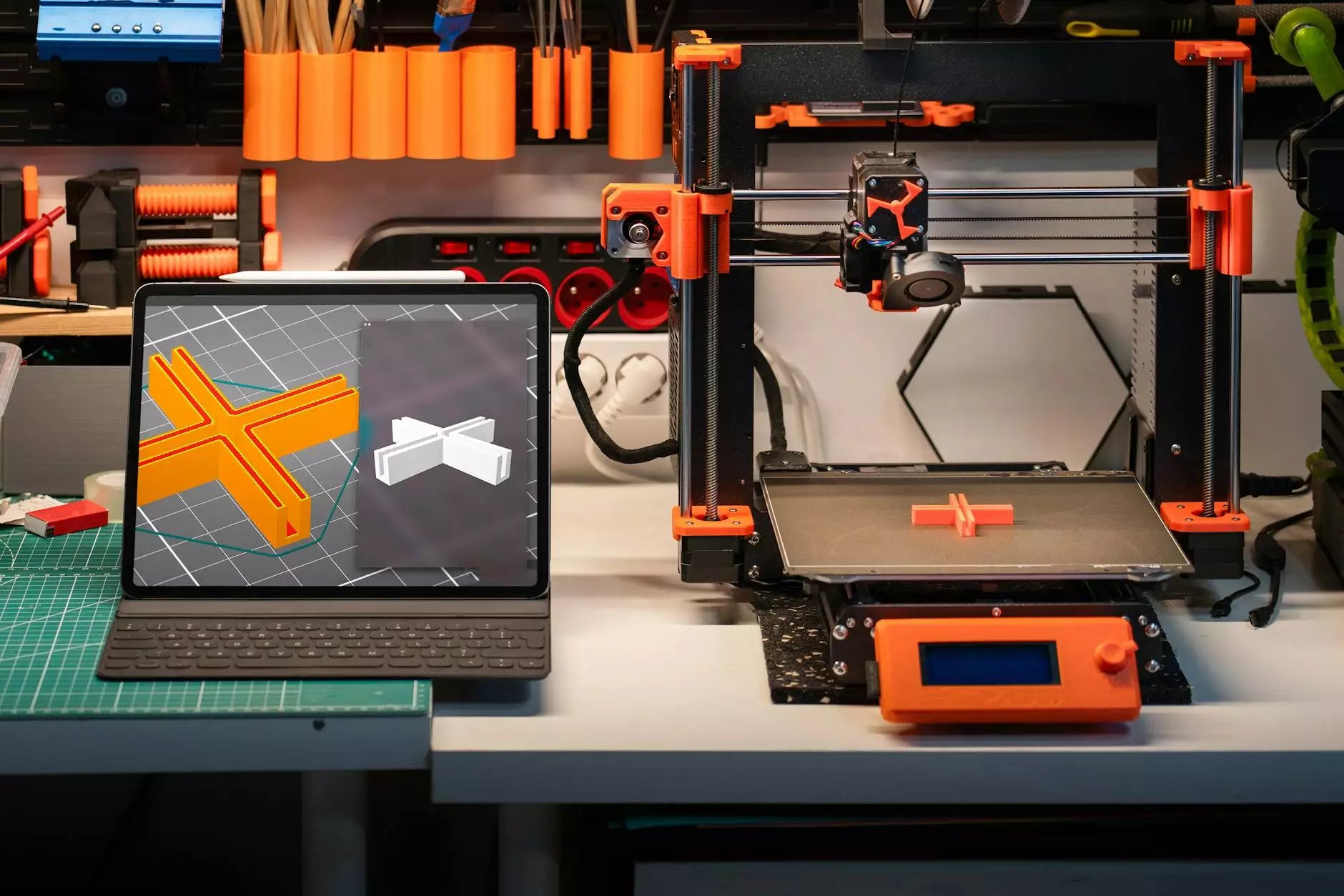Unlocking the Potential of Machine Learning Data Annotation in Home Services and Locksmithing

In today's rapidly evolving technological landscape, machine learning data annotation has emerged as a pivotal component for businesses seeking to enhance their operations and provide superior services. Among the many sectors that benefit from this innovative approach, the home services industry, particularly keys and locksmithing, stands out as a prime candidate for leveraging machine learning to drive efficiency, accuracy, and customer satisfaction.
Understanding Machine Learning Data Annotation
At its core, machine learning data annotation refers to the process of labeling or tagging data to make it understandable for machine learning algorithms. This is a crucial step in training AI models, as it allows the system to learn from the provided examples and make predictions or decisions based on new, unseen data. The quality of the annotation directly influences the model's performance, making it a fundamental aspect of any AI-driven initiative.
How Does Data Annotation Work?
Data annotation can take various forms, including:
- Image Annotation: Involves tagging objects within images, such as identifying types of locks or key profiles.
- Text Annotation: Involves tagging pieces of text to extract relevant information, such as customer inquiries regarding locksmith services.
- Audio Annotation: Useful for voice recognition technologies in booking or managing locksmith services.
The Significance of Machine Learning in Home Services
The home services industry is no stranger to innovation. With the rise of smart homes and advanced security solutions, the need for technological integration, particularly through machine learning, is essential. Machine learning enables businesses to analyze vast amounts of data, leading to insights that can streamline operations, improve service delivery, and enhance customer experiences.
Key Benefits of Machine Learning Data Annotation
- Improved Accuracy: Well-annotated data helps in training algorithms that produce accurate results, minimizing human error.
- Enhanced Customer Insights: Understanding customer behavior through predictive analytics can help locksmiths tailor their services more effectively.
- Operational Efficiency: Automated systems can save time and reduce the workload on human employees by managing routine tasks.
- Predictive Maintenance: Machine learning models can identify potential issues with locking mechanisms, helping locksmiths offer proactive services.
Machine Learning Applications in Locksmithing
The integration of machine learning data annotation within locksmithing operations introduces several innovative applications, transforming how locksmiths operate and serve their customers.
1. Smart Lock Technologies
With the advent of smart locks, data annotation plays a crucial role in enhancing security features. By labeling data sourced from user interactions with smart locks, machine learning models can identify patterns that improve locking systems' security algorithms. This includes recognizing common access attempts, user behaviors, and potential vulnerabilities.
2. Customer Service Optimization
Locksmith businesses can use machine learning algorithms to analyze customer interaction data. By annotating customer queries—such as common lock issues or service inquiries—locksmiths can better understand and anticipate customer needs, leading to improved service delivery and customer satisfaction.
3. Inventory Management
Properly annotated data regarding inventory levels, product performances, and customer preferences can lead to more informed inventory management decisions. By leveraging machine learning, locksmith businesses can predict stock needs and avoid both overstock and stockouts.
4. Fraud Detection and Security Risk Assessment
In the digital age, the risk of fraud in locksmithing services has increased. Data annotation helps in training systems to identify potentially fraudulent activities. By analyzing patterns in service requests and customer behaviors, locksmiths can detect anomalies that may signal fraud attempts.
Integrating Machine Learning into Your Locksmith Business
Successfully implementing machine learning data annotation requires a thoughtful approach. Here’s a guide on how locksmith businesses can start integrating machine learning into their operations:
Step 1: Identify Data Sources
Pinpoint the sources of data within your business. This can include customer interactions, service logs, inventory data, and market research information. Collecting rich datasets is vital for effective machine learning models.
Step 2: Invest in Data Annotation Tools
Use specific tools designed for data annotation. The right tools can automate parts of the annotation process and make it easier to label vast amounts of data accurately.
Step 3: Develop a Clear Strategy
Outline your objectives for machine learning implementation. Whether it’s improving customer service, enhancing security measures, or optimizing inventory management, having clear goals will guide your endeavor.
Step 4: Train Your Team
It's essential to upskill your team. Understanding machine learning and data annotation can foster a culture of innovation within your organization. Training workshops and courses can equip your staff with the necessary skills.
Step 5: Start Small and Scale Up
Test your machine learning models with small, manageable projects before scaling up. Monitor performance, gather feedback, and iterate on your approaches before full implementation.
Challenges in Machine Learning Data Annotation
While the benefits are clear, integrating machine learning data annotation in locksmithing is not without its challenges. Here are some to consider:
1. Quality of Data
Data quality is paramount. Poorly annotated data can lead to inaccurate machine learning models, which can undermine efforts to improve service or security.
2. Cost of Implementation
Investing in machine learning technology and training can be a significant expense. Businesses must weigh these costs against the potential benefits and savings from improved operations.
3. Resistance to Change
Employees may resist adopting new technologies. It’s essential to foster an environment where they understand the advantages of such advancements and are adequately supported during the transition.
Future Trends in Machine Learning for Home Services
As the home services market grows, the role of machine learning data annotation will only become more significant. Future trends to watch include:
1. Enhanced Personalization
Machine learning will enable locksmiths to offer more personalized services, driven by deep learning insights derived from data patterns.
2. More Robust Security Solutions
As cybersecurity threats evolve, machine learning will help locksmiths stay ahead, developing smarter locks and security systems that can learn from continued usage data.
3. Integration with IoT Devices
Locksmith services will likely see greater integration with Internet of Things (IoT) devices, leading to improved customer experiences through innovative security solutions.
4. Advances in Predictive Analytics
The use of predictive analytics in locksmithing will empower businesses to forecast needs and enhance their service offerings proactively.
Conclusion
The potential of machine learning data annotation in the locksmith industry is vast and largely untapped. By embracing this technology, locksmith businesses can streamline operations, enhance customer satisfaction, and improve their overall service delivery. As technology continues to evolve, those who adapt and harness these innovations will undoubtedly remain at the forefront of the industry.
For locksmith businesses looking to invest in the future, now is the time to explore the power of machine learning and take the necessary steps to integrate this promising technology into their operations.









